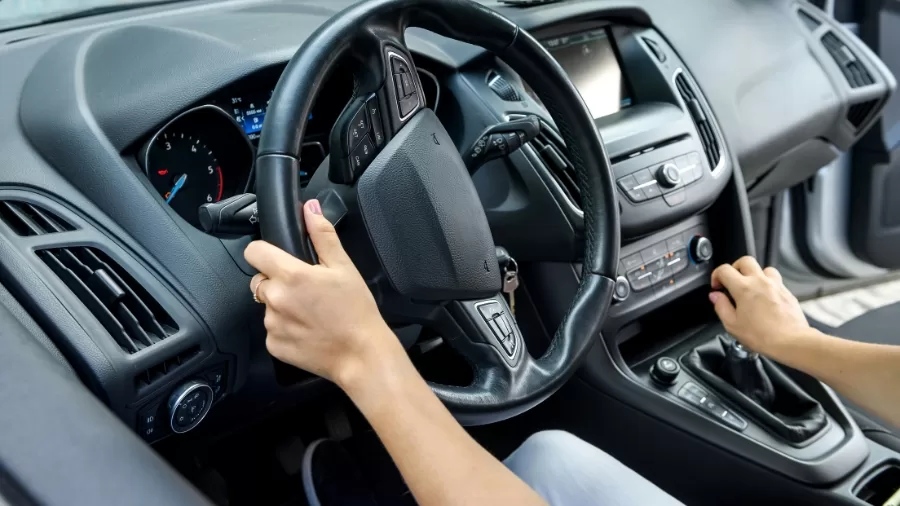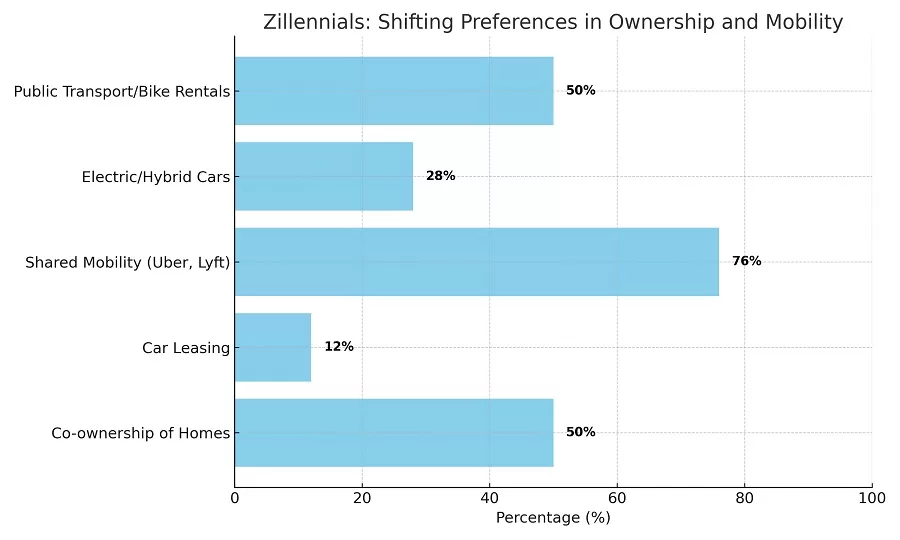Lifestyle
The Shift in Zillennials’ Attitude Towards Mobility and Ownership

- Zillennials are increasingly resisting owning assets like property and vehicles given how capital-intensive they are and how the decrease in the value of money has further discouraged them from the traditional idea of ownership.
- In the majority of cases, when making purchase decisions, it is not uncommon for Zillennials to make decisions, home ownership or car ownership in particular, much to the dismay of capitalists who are keen on expanding markets. This is simply because of the prevailing conditions rendered by the cost of living and resulting generations.
In terms of economic situations, Zillennials born between 1991 and 1999 live in a radically different period than their predecessors. The definition of adulthood for Zillennials has changed, thus there is no longer a necessity to buy a house and a car. They seek alternatives such as flexibility, access, or sustainability instead of ownership.
The high cost of living, flatlining wages, and general instability of the economy have all made it unscrupulously difficult for one to purchase a home or a car. Zillennials, conversely, look for non-traditional ways, including co-ownership of homes, rental of vehicles, or outsourcing transportation to Uber-type services. This is an illustration of a cross-generational shift regarding conceptions of the value of ownership.
Zillennials and the Down Payment Nightmare
The Apartments Bomb and the Mortgage Ship
The financial part of homeownership discourages many among the zillennials. According to one survey conducted, a massive 60%of the Gen Z group of concern stated that they are afraid they will never own a house, mainly because of the housing prices that look ready to rise even more and the interest rates that have already risen. In addition, 29% of them have a hard time saving for any down payment, while 28% of them do not feel that their savings will be good enough.
This in itself depicts the gradually improving economic conditions concerning the acquisition of property. Most Zillennials, unlike the prior generations, do not have the privilege of financial assistance from parents, hence making it just a little bit too much to save the amount needed as a deposit. Despite this, the biggest factor that worried 50% of the Generation Z who were interviewed was the high cost of houses, while 31% of them said that excessive interest on mortgages was also reducing their ability to own houses. Many are co-purchasing with friends or partners, as this is a more sustainable option.
Different Ways of Accommodating
The younger generation known as the Zillennials do not want to give up hope, and rather, most of the fears of those aspects face home ownership but in a different sense. They consider the possibility of teaming up with a partner or friends to buy homes and therefore reduce the burden financially, which enables them to make monthly payments towards purchasing a house. Even these rentals for a longer time have become popular as an alternative, as any kind of stripe of buying one’s own house does not exist. Still, others are leaving large cities and choosing to go to small towns where the cost of housing is considered low enough that one can buy a house without overstretching their resources.
The New Paradigm of Car Ownership
Excessive Spending and Car Ownership
Just like housing, a significant portion of the purchase of a car is avoided by zillennials as of late. The average cost of car transport in a year has reached £4,550, and it is becoming increasingly hard for young adults to balance the cost for the longer term. 82% of Modellini report that down payments are a significant concern in buying a car as compared to only 76% of bombers. An estimated 12% of survey respondents are utilising lease cars compared to the national average. Furthermore, 76% of those cited the cost as a deterrent to possessing a car.
Zillennials and the Changing Dynamics of Automobile Use
The lens of the cost of living well beyond homeownership and even car ownership, Zillennials seem to wish to dip their toes into the glass of expenses and transportation. More people are opting for leasing cars over buying them, as buying a long hood has been loosening, getting them out to market without the monetary condition of selling. Together, the rideshare companies Uber and Lyft have introduced new ways to accomplish almost what traditional car ownership does but without the scope of reducing insurance and maintenance. Some zillennials prefer public transport and micro-mobility services more as e-scooters or bike-rental systems, so not all personal vehicles are very important.

Sustainability and New Patterns of ‘Ownership’
Zillennials are making their consumption decisions based on more than just the financial aspect; they are also considering the environment extensively. Sustainable living seems to attract these young people, for a number of them would acquire an energy-conserving home or look for apartments in green buildings. Their inclination to adopt low-emission options is also exhibited in their choice of electric or hybrid vehicles, as opposed to petrol or diesel-powered vehicles. Car ownership is increasingly becoming a burden, while shared mobility schemes seem quite convenient, in addition to advocating for responsible use of resources. Moreover, homeownership is not a priority among younger women because of this concern for housing, car ownership, and interest in being in the advocacy for maintenance since the children are not within the structure and the cost of living does not support it.


















































